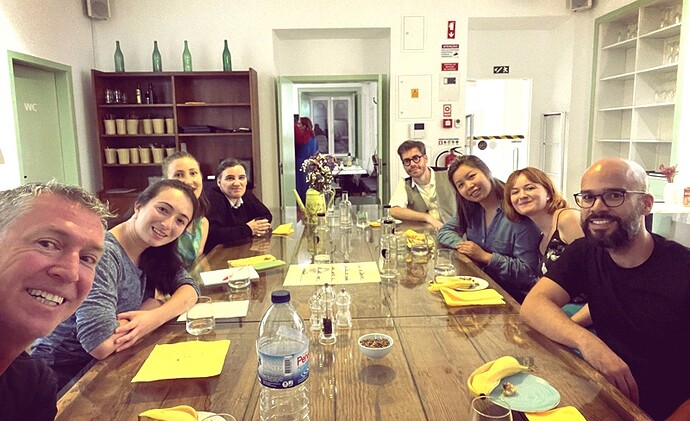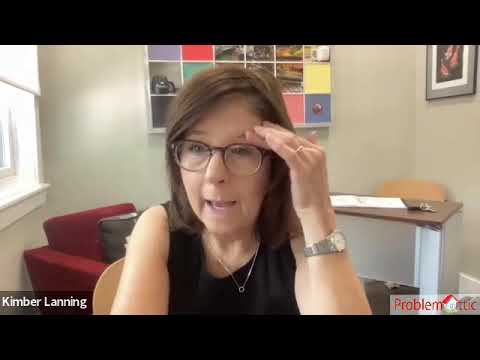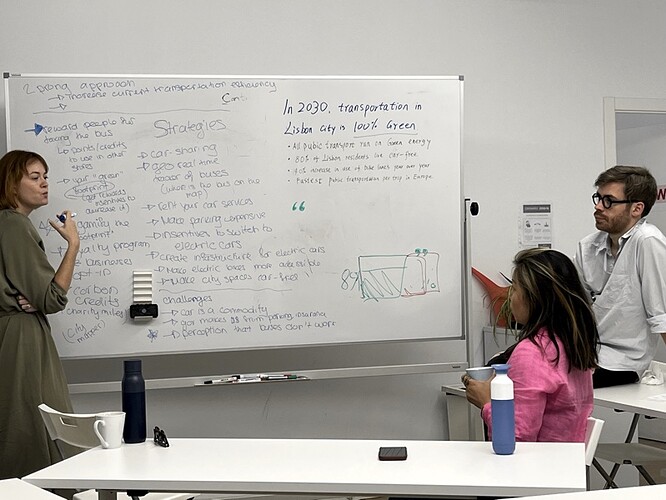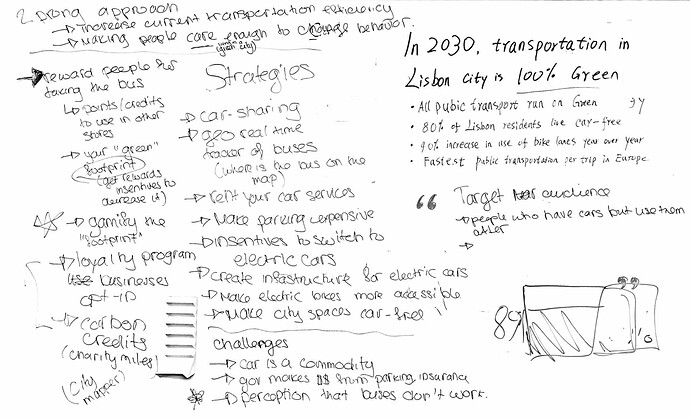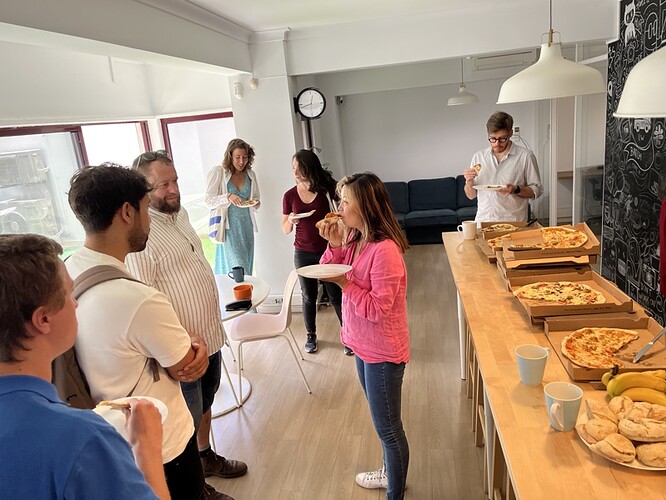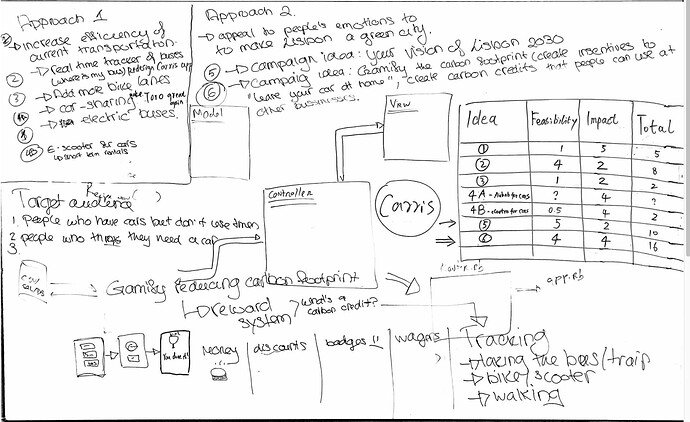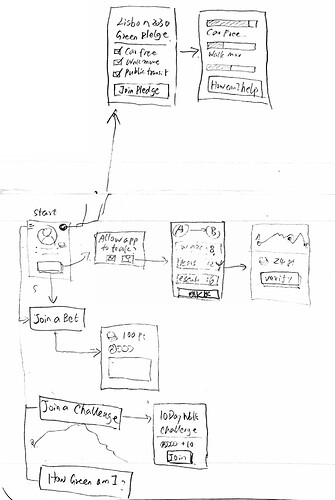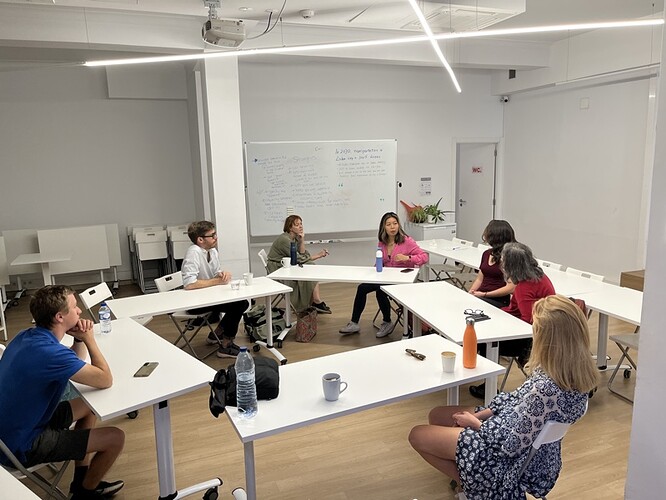Hey all, thanks to everyone who came out to our kickoff dinner last night. Here’s our merry crew:
I wanted to summarize takeaways for sake of continuing the conversation and gaining clarity on what we’ll be building on Saturday as well as filling in the people who missed the dinner but plan to participate Saturday.
First if you’re planning to come on Saturday you need to do 3 things beforehand:
- Make sure you’re RSVP’d on the Meetup event. That’s how you get in the door at Le Wagon.
- Watch the recording of our zoom below. We had 3 of the past podcast guests zoom’d in remotely doing Q&A with our volunteers to answer questions on their respective problem spaces. You can skim the video or watch at 2x speed but this is essential shared context for participants on Saturday.
- If you’ve not already done so create an account on this site, complete your profile and introduce yourself. This takes about 3 minutes in total and helps us to know the skills & interests of the people in advance so we can form the best possible teams.
Ok, all that said here are my takeaways from last night’s dinner:
-
Clarity on what we’re building in advance: We should try to figure this out before Saturday so we can devote most of that day executing vs. ideating. We have a lot of different directions we can go. There is a lot to unpack in the zoom video… our challenge is now to identify the 1-3 things we can build that are most likely to move the needle on these causes. IMO we should strive to have teams of no more than 6 people each. Beyond that it becomes “too many cooks in the kitchen” and gets messy. As of now we have 19 people RSVP’d to Saturday’s event, 8 showed up to the dinner and last time we had 30% of RSVPs show up at the event so I think it’s realistic to expect the same 8 people from the dinner on Saturday with maybe one or two extras. If there’s 8 people on Saturday I propose we pick two projects and divide our efforts into two teams.
-
How to best communicate outside of the event: I setup this Discourse discussion forum software that we’re using now because it’s the best thing I’ve seen for encouraging thoughtful discussion and it’s web-based with great mobile responsive design so doesn’t require installing yet another app on our phones in order to use. That said I’m open to using something else like Discord, Slack or Telegram if people want a more real-time native chat app instead of this. All 3 of those have API’s and single-signon so they can be integrated and will work with this site but also all 3 are SaaS whereas this is open source and therefore entirely customizable/censorship-resistant. Discourse is solid for strategic, asynchronous, thoughtful dialogue and it is like “discussion fabric” in the sense that integrates with the nocode app I’m building and can have categories that map to the various entities in the database like problems, solutions, events, episodes, etc. Nerd talk though I digress… bottomline: I would prefer to see us use this tool but let’s use whatever tool will make us most effective and not paint us in a corner long-term. IMO we need to steer clear of orphaned ad hoc WhatsApp groups because that’s a silo and can’t be integrated, new people can’t see past dialogue, it tends to encourage chatty frivolous dialogue, etc. The grand vision here is that we’re not just running a one-off hackathon to attack issues but we’re figuring out the systematic approach to this and building the playbook/tooling to make it so others can take the torch and run with it in their cities.
-
Specific Problems:
- The prison industrial complex is probably the gnarliest of all the problems we can work on in that it’s hard to see how we unravel something that’s so embedded at this point but those are also precisely the type of problems we’re here for.
- The cancer one is pervasive and if we just stick to promoting awareness of holistic treatments that’s a pretty benign simple one vs. trying to take on the cancer industrial complex. And as Lucia pointed out that seems to be primarily a US-centric issue.
- Human trafficking is the one we’ve had the most progress in that we have a mocked up prototype of the browser extension and there’s a clear path forward of something tangible we can build to influence this one. I would really like to see a team advance that one if possible as it’s our most viable path to having a win we can celebrate which will keep us all motivated.
- Wealth inequality is a huge intractable problem that needs to be whittled down to a very specific subset which we can realistically attack. It is though the one that perhaps is most relevant to Lisbon and least “America-specific” of the issues currently on the pod.
- Hunger & Homelessness is another one that is massive and seemingly intractable but we actually have a ton of progress in the app we built for Esperanca Barcelona. The job there is to port it to something like Bubble or to rewrite it as a native mobile app and then document their process so that their effort can be franchised to other cities. And of course there are other things that can be done on this one but IMO that is the clearest path for how we have impact on this one.
Anyways thanks again to everyone who attended last night. This is all one giant experiment at this point and y’all are in on the ground level helping shape how this effort evolves for here in Lisbon and beyond. Let’s continue the conversation in the thread below and try to refine the ideas to get to some concrete teams/projects for Saturday. thoughts?
